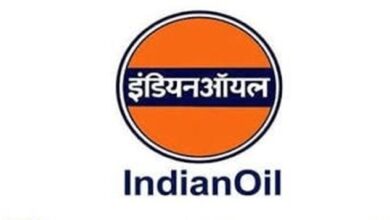ITC Limited – A Beacon of Excellence and Diversification Since 1910

ITC Limited, a prominent conglomerate based in India, stands as a testament to the power of resilience, innovation, and diversification. With a history spanning over a century, ITC has evolved from its roots as a tobacco company to become a multifaceted organization with interests in various sectors.
Established on August 24, 1910, by a group of visionary entrepreneurs led by Sir William Henry Wills, ITC embarked on a mission to revolutionize the Indian tobacco trade. Originally known as the ‘Imperial Tobacco Company of India Limited,’ the company’s founders sought to harness India’s fertile lands for tobacco cultivation and establish a strong foothold in the industry. Over the years, ITC has reimagined its identity and purpose, and today it operates under the name ‘ITC Limited.’
The firm’s transformative journey has been shaped by the determination to overcome initial hindrances and challenges. From limited access to technology and distribution obstacles to competition from established players, it’s resilience and strategic vision allowed it to navigate these hurdles and emerge as a key player in the Indian business landscape.
As a testament to its spirit of diversification and innovation, it has expanded its operations across multiple sectors. The company’s diverse portfolio includes Fast-Moving Consumer Goods (FMCG), Hotels, Agri-Business, Paperboards and Specialty Papers, and Information Technology. Renowned brands such as Aashirvaad, Bingo!, Sunfeast, and Classmate have become household names, reflecting the organization’s commitment to delivering quality products and services.
Beyond the shores of India, ITC has expanded its presence globally. With operations in over 80 countries, including investments in the United States, the United Kingdom, Dubai, and China, it has firmly established itself as an international player. This global outlook has not only broadened its reach but has also allowed the company to leverage diverse markets and unlock new opportunities.
It’s success can be attributed to its relentless pursuit of key performance indicators (KPIs) across its various business segments. These KPIs include revenue growth, market share, profitability, brand recognition, customer satisfaction, and sustainability initiatives. By diligently tracking these metrics, the company ensures that it remains focused on driving growth, meeting consumer needs, and contributing to the overall well-being of society.
ITC Limited’s journey is one characterized by transformation, diversification, and a commitment to excellence. From its humble beginnings in the tobacco industry to its current stature as a diversified conglomerate, it has continuously evolved to meet the changing demands of the market. With a global presence, a diverse product portfolio, and a focus on sustainable growth, ITC remains an industry leader, shaping the Indian business landscape and leaving a lasting impact on society.
-
Founding and Founders:

Sir William Henry Wills | Image Credits: ghgraham.org
ITC Limited, one of India’s leading conglomerates, was founded on August 24, 1910. The company was established by a group of British entrepreneurs, with Sir William Henry Wills leading the way. Together with other visionary founders, he laid the foundation for the company’s journey towards becoming a prominent player in the Indian business landscape.
The founders of ITC shared a common vision to revolutionize the Indian tobacco trade and drive economic development in the country. They recognized the potential of India’s fertile lands for tobacco cultivation and saw an opportunity to establish a strong foothold in the tobacco industry.
With their entrepreneurial spirit and determination, they set out to create a company that would thrive in the tobacco sector and expand its reach into diverse business segments over time. The founders’ vision and pioneering efforts laid the groundwork for the company’s growth and success. Their commitment to innovation, business acumen, and a deep understanding of the Indian market were crucial in shaping the company’s trajectory.
2. Initial Name and Products/Services:
In its early days, the firm operated under the name ‘Imperial Tobacco Company of India Limited.’ The company’s primary focus during this time was the manufacturing and marketing of cigarettes and tobacco products. Founded in 1910, it aimed to capitalize on India’s fertile lands for tobacco cultivation and establish a strong presence in the tobacco industry.
The objective behind starting this business was two-fold. Firstly, it sought to harness India’s abundant resources and agricultural capabilities to cultivate and produce high-quality tobacco products. This objective aligned with the growing demand for cigarettes and tobacco in India and international markets.
Secondly, the founders aimed to drive economic development in India by establishing a successful tobacco trade. They recognized the potential for job creation, revenue generation, and increased foreign exchange through tobacco exports. Additionally, the tobacco industry was seen as an avenue for technological advancement and modernization within the country.
Thus, the motive for starting this business encompassed both commercial aspirations and socio-economic goals. The organization’s early name and its initial focus on tobacco products reflected the founders’ vision to capitalize on India’s agricultural resources, foster economic growth, and establish a reputable presence in the tobacco industry.
3. Initial Hindrances and Problems:
During its early years, the company faced a range of hindrances and problems that tested the resilience of the business. One of the key challenges was limited access to technology and modern manufacturing practices. The tobacco industry, which formed the core of the company’s operations, required sophisticated machinery and processes for efficient production. Overcoming this hurdle required significant investments and collaborations with international partners to acquire the necessary technological know-how.
Another obstacle that it encountered was the presence of well-established competitors in the tobacco sector. These established players had a strong foothold in the market, making it challenging for it to carve out its own space. The company had to differentiate itself through product innovation, quality, and aggressive marketing strategies to gain market share and establish a loyal customer base.
Distribution was another critical challenge faced by the firm in its early years. Building an effective distribution network across the vast landscape of India posed logistical difficulties. However, ITC tackled this issue by investing in infrastructure and forging partnerships with distributors and retailers to ensure its products reached the target audience efficiently.
Navigating through regulatory frameworks and compliance requirements was yet another hurdle faced by it. As the business expanded, it had to adhere to various regulations governing manufacturing practices, product labeling, and advertising. Compliance with these regulations requires meticulous attention to detail and continuous adaptation to evolving legal frameworks.
Despite these initial hindrances, ITC’s unwavering determination, strategic planning, and commitment to excellence enabled the company to overcome these challenges and emerge as one of India’s leading conglomerates.
4. Current Owners and Name:

Sanjiv Puri, a seasoned business leader, holds the position of Chairman and Managing Director at ITC Limited, one of India’s premier conglomerates. As the custodian of the company’s strategic vision, Puri is pivotal in guiding the company’s diverse businesses towards sustained growth and profitability.
Under Puri’s leadership, the firm has strengthened its position as a leading player in multiple sectors, including FMCG, Hotels, Agri-Business, Paperboards and Specialty Papers, and Information Technology. With a focus on innovation, sustainability, and customer-centricity, Puri has spearheaded various initiatives that have contributed to the company’s success and resilience.
As the Chairman and Managing Director, Puri is responsible for overseeing the overall operations and strategic direction of ITC. His deep understanding of market dynamics, consumer trends, and industry landscapes has driven the company’s domestic and international expansion.
Puri’s leadership acumen, coupled with his strong commitment to ethical business practices, has garnered recognition and respect within the industry. Under his guidance, the organization has continued to deliver sustainable value to its shareholders while making significant contributions to the communities it serves.
5. Current Products and Services:

ITC Limited has diversified its operations into various sectors, offering multiple products and services to cater to different market segments. Here is an overview of the current products and services across its key business divisions:
Fast-Moving Consumer Goods (FMCG): The FMCG segment encompasses a diverse range of products. In the tobacco category, ITC manufactures and markets cigarettes and cigars. Additionally, it has a significant presence in the Foods segment, offering products such as packaged foods, snacks, and beverages. The company’s FMCG portfolio also includes Personal Care products, Education and Stationery items, Safety Matches, and Agarbattis & Dhoop (incense sticks).
Hotels: It operates a chain of luxury hotels under the brand name “ITC Hotels.” These hotels are renowned for their premium services, world-class amenities, and distinctive architectural designs. With properties located in major cities across India, ITC Hotels is a prominent player in the hospitality industry.
Paperboards & Specialty Papers, Packaging: The company is a leading player in the Paperboards, Specialty Papers, and Packaging segment. The company manufactures and markets a wide range of paperboards, including packaging boards, graphic boards, and specialty papers. These products cater to industries such as packaging, printing, publishing, and stationery.
Agri-Business: ITC’s Agri Business division is involved in multiple aspects of the agricultural sector. The company deals in Agri Commodities & Rural Services, including sourcing, processing, and trading agricultural commodities. ITC’s e-Choupal initiative is a pioneering digital platform that connects farmers with markets, providing them with information, services, and access to a wide range of agricultural inputs. The division also includes ITC Analytical Services, which offers testing and analysis services for agri-commodities.
Information Technology: Under the Information Technology segment, ITC offers IT services and solutions to businesses globally. The company leverages its technical expertise to provide software development, system integration, and IT-enabled services across various industries. ITC’s IT division caters to both domestic and international clients, delivering innovative and customized IT solutions.
ITC Brandworld: ITC Brandworld is a platform that showcases and promotes ITC’s diverse portfolio of products. It serves as a marketing and communication platform to create brand awareness and visibility for ITC’s offerings across sectors, including FMCG, Hotels, Agri Business, Paperboards & Specialty Papers, and Information Technology.
In summary, ITC’s current products and services span various sectors, including Fast-Moving Consumer Goods, Hotels, Paperboards & Specialty Papers, Packaging, Agri-Business, and Information Technology. The company’s diverse portfolio allows it to cater to a wide customer base and maintain a strong presence in multiple industries.
6. Global Expansion:
ITC has made remarkable strides in global expansion, leveraging its diverse portfolio of 13 businesses across 5 segments. The company’s efforts have resulted in a significant presence in international markets. With a robust export network, ITC has successfully reached customers in as many as 90 countries, showcasing the global appeal of its products.
ITC’s offerings can be found in an impressive 6 million retail outlets, from bustling cities to remote corners of the world. This extensive distribution network ensures that consumers across various regions have access to the company’s diverse range of products and services. The company’s global expansion strategy has enabled it to tap into new markets and connect with a diverse customer base. By establishing a strong international presence, ITC has strengthened its brand recognition and contributed to the growth of India’s exports.
Through strategic investments and partnerships, ITC has gained access to key markets such as the United States, the United Kingdom, Dubai, and China. This expansion has not only diversified its revenue streams but also facilitated the exchange of knowledge, technology, and best practices on a global scale.
ITC’s commitment to delivering quality products and services has propelled its expansion across borders, making it a recognized player in the global marketplace.
7. Key Performance Indicators (KPIs):
Key Performance Indicators (KPIs) for ITC:
- Revenue Growth: Revenue growth is a crucial KPI for ITC, measuring the increase in sales over a specific period. ITC aims to achieve consistent revenue growth across its diverse business segments, including FMCG, Hotels, Agri-Business, Paperboards and Specialty Papers, and Information Technology. Sustained revenue growth reflects the company’s ability to effectively capture market share, launch innovative products, and expand its customer base.
- Market Share: Market share represents the portion of the market that ITC commands in its respective industries. Increasing market share indicates ITC’s ability to outperform competitors, gain a larger customer base, and solidify its position as a market leader. ITC strives to achieve and maintain a significant market share across its businesses, demonstrating its competitive strength and market dominance.
- Profitability: Profitability is a fundamental KPI for any company, including ITC. It measures the company’s ability to generate profits from its operations. ITC focuses on improving its profitability through effective cost management, pricing strategies, and operational efficiency. Consistently high profitability allows ITC to reinvest in its businesses, undertake strategic initiatives, and deliver sustainable long-term value to its shareholders.
- Brand Recognition: Brand recognition is a critical KPI for ITC, particularly in its FMCG segment. ITC aims to build strong and trusted brands that resonate with consumers. Brand recognition is measured by factors such as brand awareness, brand loyalty, and brand equity. ITC invests in marketing, advertising, and product innovation to enhance its brands’ visibility and consumer perception, ultimately driving sales and market share.
- Sustainability Initiatives: Sustainability has become an increasingly important KPI for businesses worldwide, and ITC is no exception. The company focuses on environmental, social, and governance (ESG) factors, aiming to minimize its ecological footprint, promote inclusive growth, and ensure responsible business practices. Key sustainability KPIs for ITC include reduction in carbon emissions, water conservation, community development, and ethical sourcing. By effectively implementing and measuring these initiatives, ITC demonstrates its commitment to sustainable and responsible business practices.
These five key performance indicators collectively showcase ITC’s performance, growth, and commitment to creating long-term value for stakeholders while embracing sustainability and responsible business practices.
8. Lawsuits/Scams:
ITC Limited has maintained a reputation for ethical practices and corporate governance throughout its existence. The company has remained untarnished by any major scams, scandals, or lawsuits, positioning itself as a trusted and responsible organization. This commendable track record is a testament to ITC’s commitment to conducting business with integrity and transparency.
ITC has consistently adhered to stringent legal and regulatory frameworks, ensuring compliance across its diverse business segments. The company’s strong internal control systems, robust governance practices, and ethical business conduct have shielded it from any significant legal entanglements.
As a responsible corporate citizen, ITC has actively engaged in initiatives that promote sustainability, social welfare, and community development. From its efforts to empower farmers through the ITC e-Choupal platform to its focus on environmental conservation and inclusive growth, ITC has demonstrated a commitment to operating ethically and responsibly.
By upholding high standards of corporate governance, ITC has not only safeguarded its own reputation but has also earned the trust and confidence of its stakeholders. Its commitment to transparency and ethical practices inspires other companies, contributing to a healthier and more responsible business ecosystem.
9. Financial Overview:
ITC Limited has established a strong financial position, reflecting its successful diversification and strategic investments. As of the available information, the company’s market capitalization stands at an impressive 5.63 trillion INR, underscoring its significant presence in the market.
For the fiscal year that ended in March 2023, ITC reported a consolidated net profit of Rs 19,427.68 crore, marking an impressive growth of 25.45% compared to the previous year. This substantial increase in net profit demonstrates the company’s ability to generate robust returns and optimize its operations across diverse business segments.
Regarding net sales, ITC reported consolidated revenue of Rs 17,634.89 crore for March 2023. Although this represents a slight decline of 0.67% year-on-year, it is essential to consider the broader economic context and market conditions that may have influenced these figures.
As of March 2023, ITC’s total debt on the balance sheet amounted to $37.27 million. Managing debt levels effectively is crucial for sustaining financial stability and enabling future investments. It is worth noting that specific debt figures may fluctuate over time as the company manages its financial obligations and capital structure.
ITC’s financial overview highlights its ability to generate strong profits, maintain substantial market capitalization, and strategically manage its debt levels.
10. Additional Information:
ITC has garnered both admiration and controversy throughout its journey. The company’s commitment to sustainability and social responsibility is noteworthy. It has implemented several initiatives, such as the ITC e-Choupal, a unique digital platform empowering farmers, and the ITC Mission Sunehra Kal program, which focuses on rural development and livelihood creation.
In recent years, ITC has faced scrutiny regarding its tobacco business due to concerns over public health. However, the company has proactively taken steps to promote responsible consumption and reduce the harmful effects of smoking. ITC’s commitment to sustainable growth, exemplified by its diversified business portfolio and social initiatives, contributes to its overall standing as a responsible corporate citizen.
Conclusion:
ITC’s transformation from a tobacco-centric enterprise to a diversified conglomerate highlights its resilience, adaptability, and commitment to excellence. With a rich history spanning over a century, the company has grown significantly, both in India and globally. Through its diverse product offerings, focus on sustainability, and contributions to society, ITC continues to shape industries and contribute to India’s economic growth.







